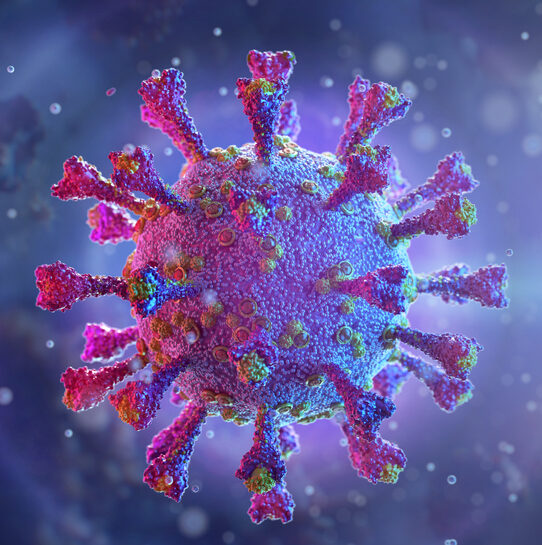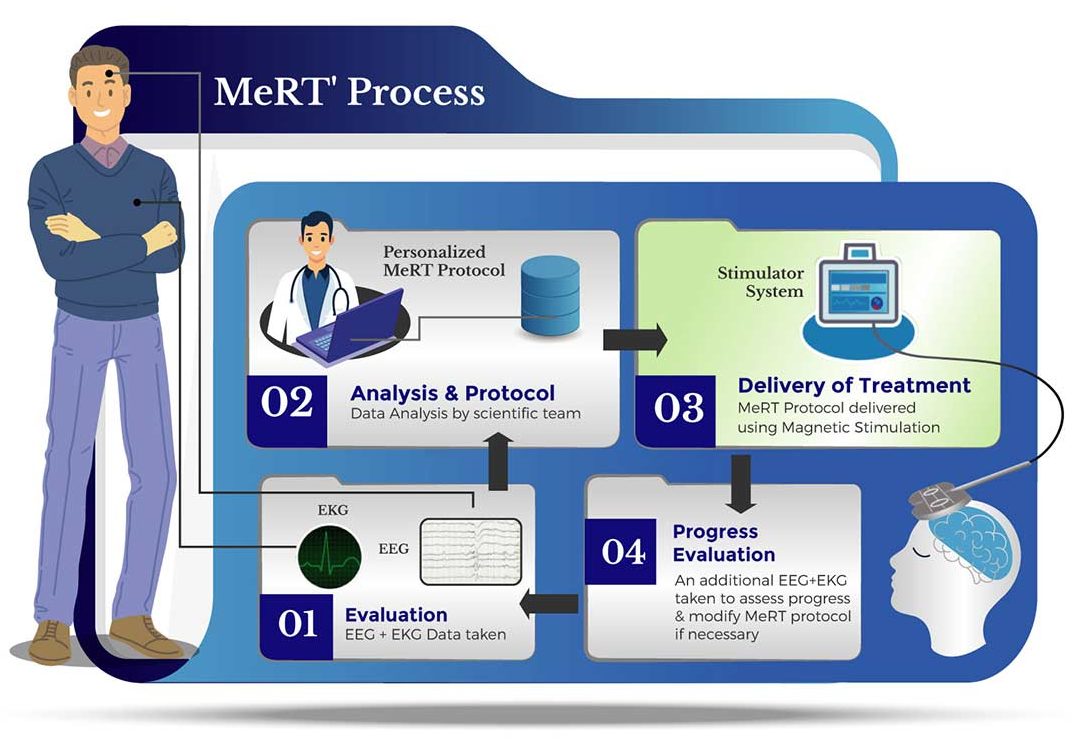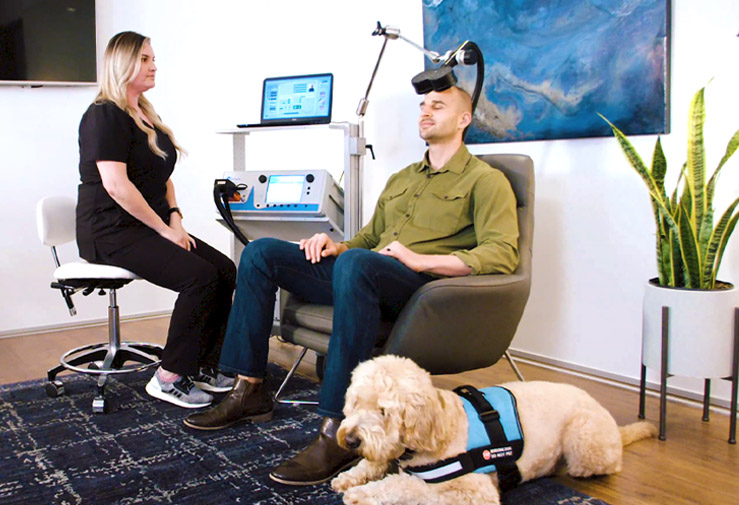Many people who contracted the COVID-19 virus are still suffering from various after-effects that have left them feeling bad — and in some cases, debilitated.
Johns Hopkins Medical Center published an article stating that people who were hospitalized and in the ICU can and are suffering from PICS, which stands for Post-Intensive Care Syndrome. This condition causes physical, psychological, and mental long-term complications.
Because of so many unknowns associated with COVID-19, many physicians are ill-equipped to help these “long haulers” make a full recovery. But we offer a treatment called MeRT® which may be able to help.
Call Our New Patient Coordinator to Learn More about our Covid-19 After Care Services
(619) 255-2101
Covid-19 Complications
Each person is unique, and those infected with the virus experienced it in various stages. Some had mild cases, while others were more severe. And sadly, way too many people ultimately passed away from complications.
We are now seeing that after-effects from the virus are also affecting people differently, regardless of how sick they may have been. Research shows that the most serious ongoing complications affect the heart, lungs, kidneys, and brain.
Other complications are occurring too, which can include:
- Overall muscle weakness
- Shortness of breath
- Lasting fatigue
- Inflammation throughout the body/brain
- Cognitive issues such as brain fog, memory problems, and changes in thinking
- Inability to sleep
- Depression
- PTSD (Post-traumatic stress disorder)
- Anxiety
- Substance abuse with alcohol and/or drugs
- Ideation of suicide
The COVID-19 Pandemic has Affected Everybody
Even if you didn’t contract the virus, chances are that you were affected by this pandemic. Everyone lost their “normal,” whether that was due to a loss of income, the inability to see friends and family, or the stress of when there would be light at the end of the tunnel.
 Sadly, many people lost their loved ones who passed away from the disease. Others who had friends or relatives in the hospital felt completely helpless and overwhelmed because they couldn’t be together during this time of extreme crisis.
Sadly, many people lost their loved ones who passed away from the disease. Others who had friends or relatives in the hospital felt completely helpless and overwhelmed because they couldn’t be together during this time of extreme crisis.
Mental health conditions have been and continue to be on the rise because of all of the stress associated with the COVID-19 pandemic. The NIH (National Institute of Health) published a study in June 2020, just a few months after the lockdown began, which showed some sobering statistics regarding mental health:
- 13% increase in substance abuse
- 31% increase in depression/anxiety
- 11% increase in thoughts of suicide
- 26% increase in other “stress-related symptoms”
The study mentioned that these increases were DOUBLE what they were pre-pandemic. It’s worth noting that this study was published only three months after the world went into lockdown, and we all know that it’s lasted much longer since that time. It’s fairly safe to assume that these statistics have risen exponentially.
Additionally, those who already had pre-existing mental health conditions were at a much greater risk of being affected. And what’s unfortunate is that we still hear very little emphasis placed on the mental health ramifications created by the pandemic, either directly or indirectly, such as much higher rates of Depression, PTSD, and Anxiety.
The Brain Treatment Center San Diego Can Help!
Here, we use a treatment called MeRT, which stands for Magnetic e-Resonance Therapy. This non-pharmaceutical and non-invasive technology has helped hundreds of people recover from mental illness and regain their quality of life!
MeRT is an emerging technology that aims to improve brain function and communication. The TMS equipment used is FDA-cleared to treat Major Depressive Disorder and OCD and is used off-label to treat a wide variety of conditions.
We have been using MeRT at our clinic in San Diego for years to treat patients suffering from various types of brain dysregulation that accompany illnesses, including:
- Depression
- Anxiety
- PTSD (Post-traumatic stress disorder)
- Insomnia
- TBI (Traumatic brain injury/concussion)
- Substance abuse
- Cognitive issues such as brain fog and memory issues
- Autism
- Parkinson’s Disease
- After-effects of stroke
- Learning disorders and ADHD
How Does MeRT Help?

We are learning that it may also help those suffering from the aftereffects of COVID-19, which can include inflammation of the brain.
Regardless of the cause, whether it be mental, emotional, or physical, these conditions all cause dysregulation to occur in the brain pathways, which is visible on a qEEG. Once we determine the exact dysregulation going on in your brain, then we can come up with a treatment protocol to help.
It is important to mention that while MeRT can help with various things, it is not a cure for permanent brain damage that may have been caused by the virus or for brain tissue that has died. However, it can help to reduce inflammation and possibly restore damaged brain tissue, and the effects of treatment are long-lasting.
Because each person’s brain is unique, a qEEG, the cornerstone of our treatment protocols, is required to identify the exact dysregulation occurring.
This data is then sent to our team of neuroscientists for a specific treatment protocol based on each individual’s brain patterns.
We are then able to use these protocols to treat each patient by using a set of magnets that gently send magnetic signals into the brain, which will restore and reorganize the brain waves that will stimulate and reorganize the neuron function. This is called neuromodulation.
Benefits from MeRT can Include:
- Better mood
- Improved concentration and focus
- Increased relaxation
- Improved sleep
- Improved memory
- Increased mental clarity
- Greater ability to cope with stress
- Increased attention span
- Increased motivation
- Fewer cravings (drugs and alcohol)
- Improved emotional stability
- Improved sociability
- Increased self-esteem and self-confidence
- Increased energy
Please note that improvements and results can vary among individuals and are based on strict and active observation of our treatment regimens; thus, they cannot be guaranteed.
Call Our New Patient Coordinator to Learn More about MeRT
(619) 255-2101
The MeRT Process

MeRT treatment protocols use a magnetic field to balance and stimulate brain function. The technology uses brain imaging and sophisticated diagnostics to customize treatment for each individual.
This is a personalized protocol tailored to the magnet’s location, frequency, and power amount.
The objective of MeRT is to improve brain communication and synchronization, leading to significant and long-lasting improvements.
What to Expect as a New MeRT Patient
We understand that MeRT is a relatively new, cutting-edge treatment, and you may not be certain if this is right for your situation. But this is not a decision that you need to make right away or all alone.
Your first step would be a simple phone consultation with our New Patient Coordinator. Here you can discuss symptoms and history, ask all the questions you want, and have her explain the protocols, fees, and details of treatment.
Testing and Evaluation
If you are interested in taking the next step, we can set up an appointment for an EEG (a simple, painless, and non-invasive brain scan).
At your first appointment, we will perform a qEEG (quantitative EEG)/EKG test to evaluate brain activity. This test, also called “brain mapping,” will show us any dysfunction and confirm that your brain health issue falls under the conditions treated by MeRT.
This tool is valuable as it allows us to customize treatment specifically for YOU. Our chief neuro technician performs this test, which takes approximately 45 minutes to complete. However, if you are seeking treatment for your child with autism, please plan on spending an hour with us. We will also gather your new patient paperwork and schedule you for your initial assessment period of treatment.

Please note that if you choose a telemedicine appointment and are seeking treatment for your child, your child will need to be present. During this consultation, Kayleigh will answer any questions you may have and discuss your applicable treatment plan. Additionally, you will have an opportunity to meet with our physician and Medical Director, Julie Kim, M.D.
Assessment Period
We recommend six weeks of treatment for patients undergoing MeRT to achieve optimal and long-lasting results. However, prior to committing to the six weeks, we have each patient go through an assessment period of treatment to see how they will respond. We include this assessment period as part of the six weeks of treatment.
The assessment period is two weeks long. It consists of nine treatment sessions, followed by a repeat qEEG. We provide treatment for the first week, Monday through Friday, and the following week, Monday through Thursday. A typical treatment session lasts about 30 to 45 minutes. Additionally, your provider will go over the follow-up qEEG results with you.
Continued Treatment
If clinical changes are occurring as they should and the qEEG also shows progress, you would then continue treatment, which would occur five days per week, Monday through Friday. Generally, you will begin to feel the benefits of treatment within a week or two. However, because treatment is cumulative, you should continue to note improvements throughout the course of your treatment and even for some weeks after. As treatment is consecutive, you must be able to stay in or around the area while undergoing your therapy.
Improvements and results of MeRT are based on strict and active observation of our treatment protocols. Results may vary based on each person and are not guaranteed.
Because each person’s brain and condition are unique, we customize treatment protocols for each patient, guided by the qEEG results. Repeat qEEGs and clinical consultations occur every two weeks throughout treatment. The effects of treatment generally last a lifetime, though some people prefer occasional follow-up treatment.
During your session, you will sit in a comfortable chair while the neuro technician administers this gentle treatment with a hand-held magnet near the scalp. While you may feel a slight sensation during treatment, it is not painful or uncomfortable. We deliver magnetic pulses for 6-8 seconds during each minute of treatment.
Potential side effects of treatment are minimal and should begin to dissipate after you begin to progress through treatment.
Contact Our New Patient Coordinator for More Information

If, after talking to her, you are interested in further exploring whether you could benefit from MeRT, the next step would be to schedule your EEG and a Consultation.
With thorough diagnostics, we can show you what is seen as happening in your brain and what may be causing the issues you are experiencing.
At this point, you can determine whether you may benefit from MeRT Treatment and decide whether to proceed.
Call Our New Patient Coordinator to Learn More
(619) 255-2101
Or fill in the form below and she will contact you.
Contact Us
For more information or to speak with our New Patient Coordinator, please fill in the information below.
Contact Us
For more information or to speak with our New Patient Coordinator, please fill in the information below.

